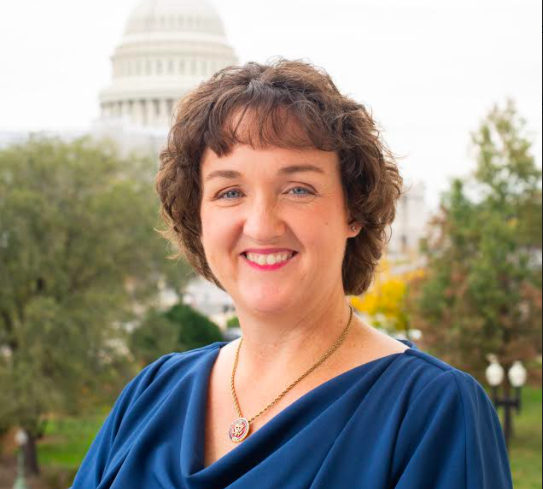The Pentagon’s Proposal to Fill the Swamp
The Department of Defense has sent a request to Congress to roll back post-service lobbying restrictions for former general and flag officers and senior Pentagon civilians. That’s a terrible idea.

Published by The Lawfare Institute
in Cooperation With

Why is the Pentagon trying to grease the revolving door between the military and the defense industry?
On Feb. 14, the Department of Defense sent a request to Congress to roll back post-service lobbying restrictions for former general and flag officers and senior Pentagon civilians. This proposal is misguided. It sends a terrible message to taxpayers, service members, civil servants and defense contractors. Not only should Congress reject this request in the upcoming debate over the National Defense Authorization Act (NDAA) for fiscal 2021, but lawmakers should also take this opportunity to strengthen ethics laws and transparency at the Pentagon.
There are three main features of the Defense Department’s proposal, each of which increases the risk of improper influence. First, the department wants a one-year lobbying ban for all senior officials, regardless of rank—a decrease from the current two-year ban in place for some officials. Second, it wants to narrow the definition of lobbying, so that the ban applies only to direct “lobbying contacts” with covered officials. Third, the Pentagon wants to eliminate the department-wide lobbying prohibition so that former senior officials will be able to immediately lobby some components of the Pentagon. These changes would gut existing lobbying restrictions created under Section 1045 of the NDAA for fiscal 2018.
Under Section 1045, former military officers above the rank of major general or rear admiral (O–7)—and their civilian equivalents—have a “cooling-off” period after they leave government, during which they cannot legally work as lobbyists. The cooling-off period is one year at grades O–7 and O–8, and two years at grades O–9 or above. It applies to the entire Defense Department and all military services.
These long-overdue reforms were championed by the late Sen. John McCain and passed into law during his final year as chairman of the Senate Armed Services Committee. They were enacted with bipartisan support at a time when Republicans controlled the House, the Senate, and the White House. Section 1045 is an example of government at its best, transcending partisanship to reduce influence peddling in Washington.
Before the enactment of Section 1045, lobbying by former Defense Department officials was subject primarily to the standards in 18 U.S.C. § 207, the section of the criminal code dealing with restrictions on former executive branch employees. Specifically, 18 U.S.C. § 207(c) puts a one-year restriction on “lobbying contacts” by former Pentagon officials at pay grade O–7 or above, or their civilian equivalents. The problem is that this leaves enormous room for lobbying within the bounds of the law. Pentagon officials could retire on Friday and join a lobbying firm on Monday with little constraints on their activity. Under § 207(c), former officials are allowed to plan a lobbying campaign, direct a lobbying team and even draft correspondence to covered officials—just as long as they don’t send the email themselves.
These standards were, and still are, supplemented by ethics opinions from Defense Department lawyers, but such opinions are only as good as the laws on which they are based. For example, recall the work of future Secretary of Defense Gen. James Mattis as a board member for the Theranos medical technology company—a company that ultimately turned out to be built on a scam. In 2012, as head of Central Command, Mattis advocated repeatedly for a pilot program using Theranos technology in Afghanistan. Mattis retired from the Marine Corps in March 2013 and joined the board of Theranos in July 2013. Defense Department ethics officials told Mattis he should not “represent Theranos before the DOD [Department of Defense] and DON [Department of the Navy] on that particular matter for the lifetime of the matter,” referring to the pilot program. Yet Mattis was not barred from representing Theranos on other matters, or with other service branches or components of the Defense Department.
There are hundreds of other examples of such arrangements that violate the spirit, if not the letter, of the law. For instance, in August 2013, the head of Middle East planning for the Office of the Secretary of Defense left government service—and later that same month started working for Raytheon, where he led business development activities and government client relations across Middle East and North Africa. In another example, on June 1, 2016, the former vice chief of staff of the Army started as a member of the board of directors at the defense company BAE Systems—just two weeks after retiring from his role at the Pentagon. BAE’s press release said the quiet part out loud, stating that their new hire’s “knowledge and perspective on the U.S. military’s needs around the world will be highly valuable.”
The risk posed by these arrangements is that the Defense Department will make policy decisions and spend taxpayer money based on what industry wants, not what is in the best interest of taxpayers or national security. The same is true of other government agencies and entities with similar arrangements. Research has shown repeatedly that receiving gifts or money from a pharmaceutical company makes doctors biased toward that company, and that financial analysts change their forecasts depending on whether they’re working with investment banks or pension funds. It is human nature for personal relationships with former colleagues to cloud the judgment of policymakers when those colleagues come to lobby. There’s also the risk that government officials will show favoritism toward prospective employers. The easier it is to get a job with industry post-retirement, the greater that temptation becomes.
Section 1045 sought to address these problems by lengthening the cooling-off period for the most senior Defense Department personnel and prohibiting all “lobbying activities,” not just lobbying contacts. Under the Lobbying Disclosure Act, codified at 2 U.S.C. ch. 26 § 1601 et seq, the term “lobbying activities” covers lobbying contacts “and efforts in support of such contacts, including preparation and planning activities, research and other background work that is intended, at the time it is performed, for use in contacts, and coordination with the lobbying activities of others.”
As the Pentagon noted in its request to roll back Section 1045, this definition limits the ability of former officials to lobby “behind-the-scenes.” Although the Pentagon did not provide examples, the department argued in communications with us that this is “unreasonably interfering with the right of veterans and public servants to future employment.”
The evidence says otherwise. First, the Lobbying Disclosure Act provides 24 exceptions to lobbying activities, including but not limited to speeches, articles, publications, interviews, media appearances and meeting requests. As Crowell & Moring noted when Section 1045 was enacted, “newly separated very senior Department of Defense Officials will not need to sit around doing nothing to wait out this restriction—plenty is still permitted.” Second, former officials still seem to go through the revolving door with relative ease. For example, Friday, Jan. 10 was Steven Walker’s last day as the director of the Defense Advanced Research Projects Agency (DARPA). On Monday, Jan. 13, Walker started his new job as vice president and chief technology officer for Lockheed Martin—DARPA’s biggest client.
The Defense Department’s proposed changes to Section 1045 could directly benefit individuals such as Walker, who worked at the intersection of different Defense Department offices, by introducing the concept of “separate agency components.” Under 5 CFR § 2641.302, the director of the Office of Government Ethics “may designate agency ‘components’ that are distinct and separate from the ‘parent’ agency and from each other. Absent such designation, the representational bar of section 207(c) extends to the whole of the agency in which the former senior employee served.” The “separate agency component” designation potentially allows a retired O–8 who worked for the secretary of the Air Force on the F-35A to lobby the secretary of the Navy about the F-35B and F-35C—even though that official would be prevented from lobbying the secretary of the Air Force. This is exactly what Section 1045 sought to prevent by making the cooling-off period Defense Department wide.
In April, we wrote to the Defense Department, along with several of our House colleagues, requesting more information about the proposal and inviting the department to provide additional justification. The Pentagon provided a lengthy response but did not offer any specific examples of problems caused by the current law. The department also declined to provide documents that would have helped us understand the development of their proposal, though they did offer a briefing.
We recognize the Defense Department’s concern that former Pentagon officials face a confusing patchwork of laws and regulations. But the solution is not a race to the bottom for the weakest possible standard. Congress should not roll back lobbying limits for the defense industry just because the rules in other industries are even more permissive. The standards should be high given the national security and budgetary implications of decisions by the Pentagon.
Rather than grease the revolving door, Congress should take heed and continue to strengthen ethics and lobbying rules at the Department of Defense. For example, the proposed Department of Defense Ethics and Anti-corruption Act of 2019 (H.R. 4277) would, among other provisions, lengthen the cooling-off period and expand it to additional senior Defense Department officials. There are many decision-makers at the O–6 level to whom these rules should reasonably apply.
The Pentagon should also return to the practice of making its NDAA legislative requests public, as was the custom from 2000 until 2018. Under no circumstances should the Pentagon be making secret legislative requests to Congress—as was the case with this proposal until it was leaked to outside watchdogs. We will be introducing an amendment to this year’s NDAA to require publication in the future.
In their letter to us, the Defense Department wrote that “good government requires standards that are clear and easy to apply, and that these standards should be consistent throughout the Executive Branch.” That is true, but good government also requires standards that limit influence peddling by former government officials—a clear shortcoming of the Pentagon’s proposal. As then-candidate Donald Trump said in 2016, we need to “close all the loopholes that former government officials use by labeling themselves consultants and advisors when we all know they are lobbyists.”



.jpg?sfvrsn=5a43131e_9)

